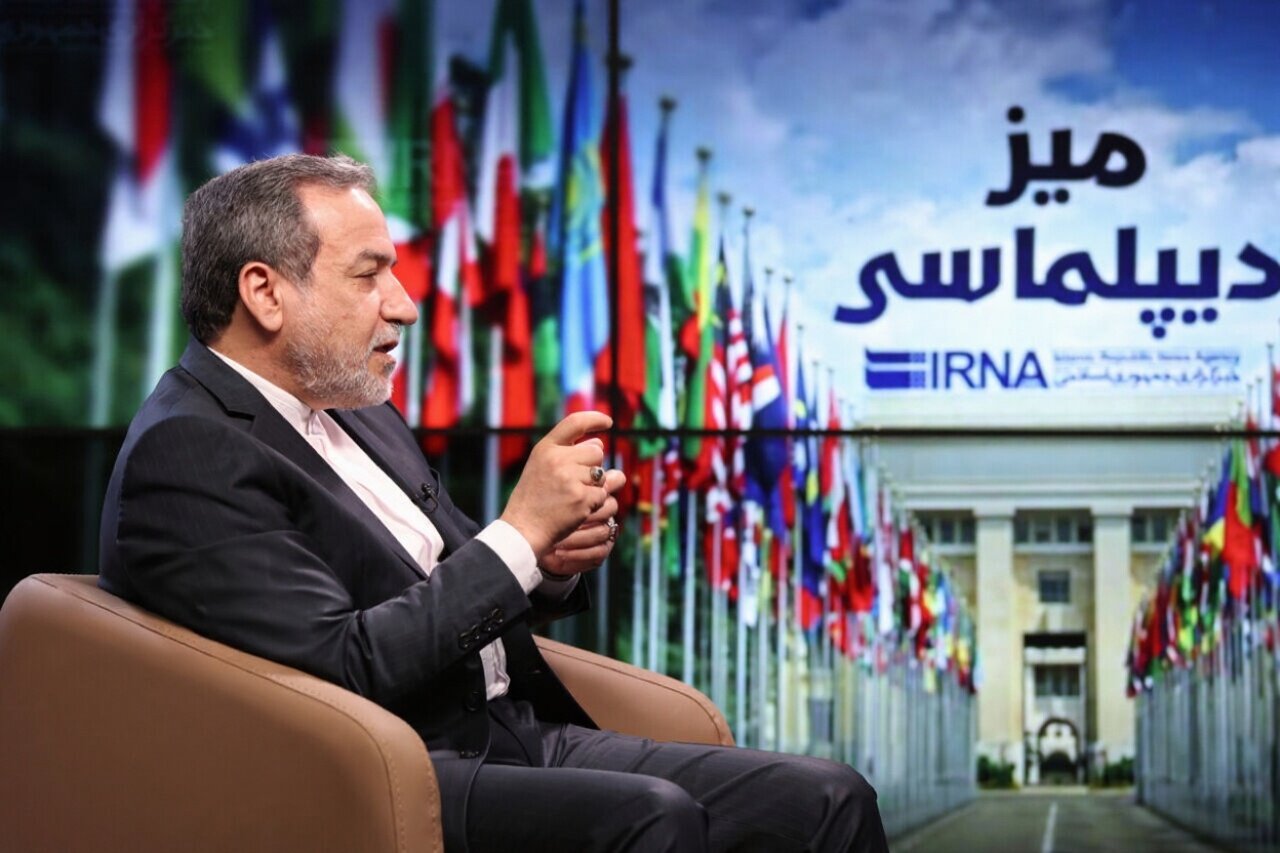US pursuit of ‘zero enrichment’ derailed nuclear diplomacy: Araghchi

TEHRAN – Iran’s top diplomat has stated that Washington’s recent military actions against Iran were a direct result of its failed efforts to force Tehran into completely abandoning its nuclear enrichment program.
Iran and the United States participated in five rounds of indirect talks in April and June in a bid to craft a deal that would limit Iran’s nuclear program in exchange for the termination of U.S. sanctions. Only days before the two sides were set to travel to Oman for a sixth round of discussions, Israel launched airstrike on Iranian soil with U.S. backing, with American aircraft later joining the war directly to bomb three Iranian nuclear sites. The talks were called off by Tehran when the war broke out, and have stayed in limbo since.
In a detailed interview with Iranian media, Foreign Minister Abbas Araghchi explained that American negotiators, influenced by hardline advisors, became fixated on the concept of "zero enrichment" as the only way to prevent a nuclear-armed Iran. This ultimatum, he said, was a primary point of contention that Tehran could never accept.
"The core of their position was that Iran must never have the capability to develop a nuclear weapon," Araghchi stated. "They were persuaded that any enrichment activity, however limited, inherently preserved that potential. This led them to make a total cessation of enrichment their non-negotiable demand—a line we firmly rejected."
Araghchi reiterated Iran's official stance, pointing to a religious decree from Leader of the Islamic Revolution Ayatollah Seyyed Ali Khamenei that bans nuclear weapons. He emphasized that the nation's nuclear ambitions are strictly peaceful.
"Our policy is not and has never been to acquire nuclear arms," he said. "What we insist upon is our sovereign right to nuclear technology for peaceful energy purposes and to safeguard the scientific advancements we have made ourselves."
The diplomat revealed that several practical solutions were discussed during indirect talks mediated by Oman. These plans aimed to find a middle ground that allowed for monitored enrichment while ensuring non-proliferation.
"Operational plans that balanced both sides' concerns were on the table and seriously considered," Araghchi noted. "However, the American delegation would consistently backtrack upon returning to Washington, where political pressure groups convinced them to hold the uncompromising line of zero enrichment."
Despite the setback that led to military conflict, Araghchi defended the use of diplomacy as a vital tool of statecraft. He dismissed the simplistic view that negotiation with the West is inherently wrong while war is noble.
"This is a false dichotomy. Both war and diplomacy are instruments a state uses to pursue its goals," he argued. "Diplomacy is often the less costly and risky path, though sometimes it fails. Neither is intrinsically good nor evil; their value depends entirely on the context and how they are employed."
Araghchi also credited Iran's regional diplomatic outreach and, crucially, its demonstrated military strength for ultimately deterring a broader war. He suggested that while diplomacy created off-ramps from conflict, it was the nation's preparedness and powerful response that convinced its adversaries to de-escalate. "The strength and authoritative response of the Islamic Republic were ultimately what discouraged the enemy from continuing its aggression," he said.
Reports suggest Iran and the U.S. may engage in indirect talks again in the future. Analysts, however, say diplomacy cannot bear fruit if Americans do not seek a win-win outcome.
Leave a Comment